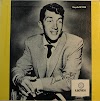 |
| Above: The cover of the original novel. |
In a delightful turn of events, I have also been in contact with Ciji Ware, the daughter of Harlan Ware (1902-1967), the author of the story behind the film. Ms. Ware, a noted journalist, novelist, speaker, and producer, has shared generous details about this film's journey over the years and its present state in legal limbo.
Ms. Ware has given me permission to quote from her account of circumstances surrounding the transition of Come Fill the Cup from the page to the screen. As clarified by the author's daughter, "her recollection [comes out of her memories] as a youngster...overhearing conversations between Jim Cagney and his brother [William] and my dad."
As explained by Ciji, "Warner Brothers cannot air the movie without paying my father's literary estate royalties, which they never seemed to want to do. About 15 years ago we [the Ware family] learned that the movie had been shown on TV 'bundled' with a few other Warner films and sold...we threatened suit and were paid what was owed, but I believe the film is not shown on TV." I confirmed for Ms. Ware, as others may also, that many of us who remember this memorable film from our childhood recall it being shown on broadcast television more than once in the '60s and '70s, which may be when this movie was still controlled by Warner Brothers.
Ciji explained that the story, which is out-of-print, was initially shepherded through Warner Brothers by the Cagney brother's production arm, run by Jim's brother, William Cagney. Working with his brother, William Cagney Productions was the independent corporate affiliation that had backed the filming of such James Cagney vehicles as Blood on the Sun (1945), The Time of Your Life (1948), and Kiss Tomorrow Goodbye (1950) prior to Come Fill the Cup.
 |
| Above: Former actor and Associate Producer William Cagney and James Cagney signing the incorporation papers creating their own production company in 1942. |
"Jim and my father became friends as a result of their association in this film--a friendship that lasted until my father died in the late 1960s, and the families remain friends to this day..." Ciji went on to recall that her family's friendship with the actor extended to the whole family. "Jim's brother Bill headed up Cagney [Productions] and was the financial whiz in the Cagney clan. Brothers Harry and Ed were both physicians; Sister Jeannie and I picked each other as Godmother and God-daughter and were close until she died of lung cancer. At one point Jeanne and Bill asked me to write a joint memoir with them THE CAGNEY CLAN," a project which went dormant after the siblings became ill and passed away. It would be wonderful if Ms. Ware could eventually craft this into the long-planned chronicle, working with the Cagney descendants.
Ciji explained that the exploration of alcoholism and sobriety in the movie was drawn in part from her father's own life. Her father had been "a member of AA before I was born and I think that Come Fill the Cup was filled with his own experience and was [also] inspired by the life that Jim Richardson led as a hard-boiled city editor who 'knew where all the bodies were buried in City Hall.'" Ms. Ware confirmed that her father and Richardson were longtime friends with newspaper backgrounds and experience in vaulting some of life's more personal hurdles. "Jim Richardson," she wrote me, "was among my father's best friends, along with Jim Cagney and another actor, Ralph Bellamy. In fact, you may have noticed that the book [which I found in the library in researching this work] is dedicated to JR as "The Last of the Terrible Men." The Richardsons and the Wares lived a few blocks apart from each other in the late '30s, '40s, until 1954 when we moved to Carmel, CA. I grew up with these wonderful gents telling wonderful stories and howling with laughter."
 |
| Above: Author Harlan Ware (left) and his friend editor Jim Richardson (right). [Used with permission of Ciji Ware] |
Ms. Ware's work, including seven novels and nonfiction books, have earned her a Dorothy Parker Award of Excellence, and includes a novel, "A Cottage By the Sea," incorporating elements of her family's story. Copies of her work can be readily purchased on the internet, including here.
The original post about this movie is found here.



.jpg)

0 Yorumlar